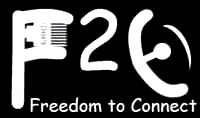
Last week's Congressional hearing on US companies' aiding and abetting human rights violations in China (see China enters 21st century; new Gang of Four dragged before US Congress got its not wholly unexpected sequel.
The Chairman of the Committee, a chap going by the slightly ominous name of Mr Smith, has now proposed a new piece of legislation, the Global Online Freedom Act. The act would restrict the ability of internet companies to censor their websites and search results, and force them disclose any filtering, if applied. In other words, it would render most of the current Gang of Four's activities in China (Cisco, Google, Microsoft, and Yahoo) illegal, and put them at odds with the Chinese authorities.
Smith's proposed law would also call for global standards, of course to be monitored by an Office of Global Internet Freedom (which would immediately engage in a turf war with the US State Department's newly announced Global Internet Freedom Task Force).
Although most of this amounts to the usual meaningless political grandstanding (would the coined names be any clue?), the idea of establishing global standards for ethical behaviour in such thorny issues as how to comply with censorship is not bad.
The Electronic Frontier Foundation seems to agree, but proposes a Code of Conduct instead. The internet community itself however, most notably the blogosphere gives Mr Smith the cold shoulder. Threadwatch calls the idea "at best arrogant, pompous and hypocritical".
The may be, but at least we have a public discussion now. In future the Googles and Yahoos of this world will be forced to consider their actions carefully, lest reputations get damaged, or "Don't Be Evil" mottos become obsolete and need to be gradually replaced by Ten Things.





No comments:
Post a Comment